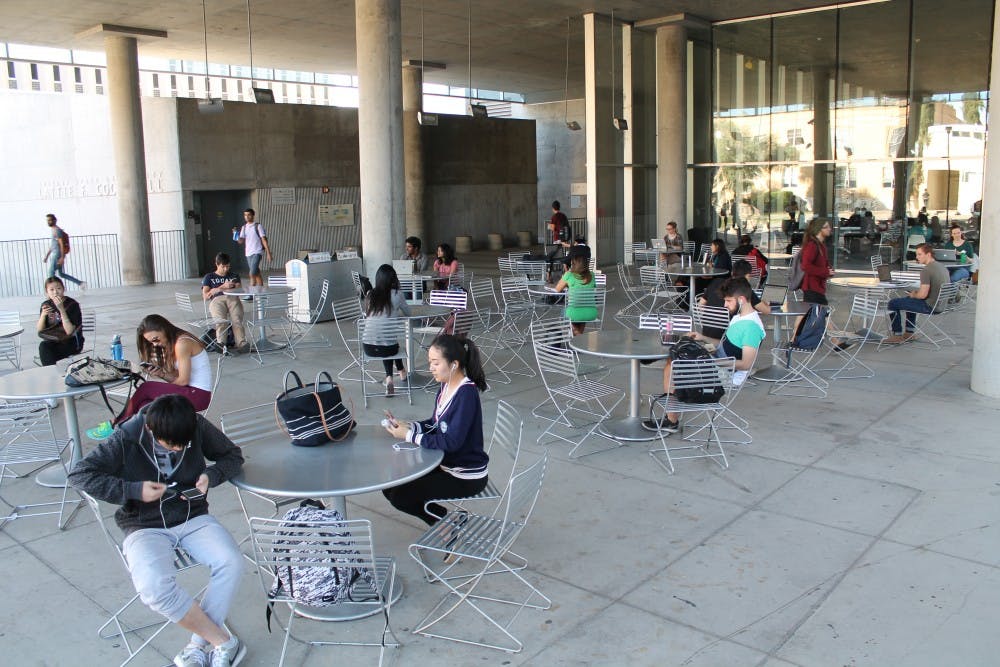Everyone wants to ace that test, lose weight or stay alert during work, but it seems like more and more people feel like they don’t have what it takes: unless they take Adderall.
A Huffington Post four part series called “The United States of Adderall,” delving into the horrid reality of Adderall. It was published on Feb. 1, 2016 and written by Lawrence Diller, M.D. Diller practices behavioral and developmental pediatrics and is a clinical faculty member at the University of California, San Francisco.
The piece focuses on the outrageously skewed American culture of achievement and its relation to unnecessary use of stimulants. Diller uses the anecdote of a college student named Amber who is hopelessly addicted to Adderall, and he explains the dark side of this seemingly harmless drug.
Adderall is a performance enhancing stimulant that can be prescribed by a doctor or psychiatrist. 20 years ago it was a sit-still-in-school drug that helped children focus in class and remain calm. Now it is a mainstream drug that is traded like playing cards on college campuses and misused by a completely different demographic.
When enthralled in the substance, a person is on a high: focused, alert, confident. When that person begins to come down from the drug, they experience harsh side effects that worsen with every dose.
The amount of prescriptions has skyrocketed in the last 20 years, and Diller isn’t the only one who recognizes the problem. Maryanne Penzi, M.D., a former doctor at Winthrop hospital in New York, is hesitant to allow her autistic son to regular take Adderall because of the tolling side effects and high risk of addictiveness.
“If you really have A.D.H.D. (Attention Deficit/Hyperactivity Disorder) or A.D.D. (Attention Deficit Disorder), it’s absolutely great,” Penzi says. “But if not, it can ruin your life.”
Americans today are obsessed with success. Culture norms pressure adults- college students in particular- to do anything to win and achieve, even if it means falling a prisoner to a pill. Many users don’t realize the potential health risks associated with the constant use of Adderall.
Happiness is hard to achieve in today’s society because people continue to raise expectations of themselves and others, which amps up the pressure to deliver what we can’t- or think we can’t- naturally deliver on our own merit.
Diller coined this mentality “Achievement Anxiety Disorder” and writes in his series that it is the true cause of Adderall misuse and all of the negative effects it brings.
The stimulant causes extreme appetite loss and sometimes jitters. When coming down or withdrawing, the user can experience extreme mood swings or depression. Adderall addicts also have been known to develop an irreversible tick, or Turrets. When the drug wears off, the user’s mind becomes foggy and unfocused, sometimes to an uncomfortable level.
College students are crashing. Striving to lose unhealthy amounts of weight, avoid sleep to over achieve, and even to enhance their party experiences by mixing alcohol with the drug. America is becoming increasingly more dependent on a pill that slowly kills them.
“If I don’t take my Adderall I’ll feel lethargic and lack the motivation to get anything done,” Arizona State University graduate Nicole Petriw says.
Nicole Petriw has been prescribed Adderall since her freshman year of college, and uses only the recommended dosage, but agrees to feeling these symptoms regularly when she alters her dosage or irregularly takes a pill.
Diller described his subject Amber’s crashing of sleeping for days, binging on ice cream and crying for no reason as an accurate depiction of an addict’s frequent nightmare.
Amber says that whenever she considered getting help for her addiction, her overwhelming feelings of sadness and hopelessness stopped her.
The problem with the Adderall craze has fallen on the shoulders of the doctors and psychiatrists that issue the prescriptions. There aren’t any brain scanners or blood tests that can decipher the true needs of a patient, if any. The doctor has to trust the patients' claims.
College students fake symptoms on this rigorous questionnaire that prompts them to describe their emotions and ability to focus in order to be falsely prescribed the drug. Some use it to focus through long school days or just sell it to others who aren’t prescribed.
Penzi says that her practice normally prescribes a drug that is less desired by the public such as Ritolin or Vocalin at small dosages to prevent “giving in” to prescribing yet another adult to the drug.
“A lot of people know the game. They know the doctor will have to give them a prescription to Adderall if they are persistent,” Penzi says.
Patient care technician Jamie Karch of Banner Health says that she and her coworkers are well aware of the illegal trends of selling and abusing Adderall but are at a loss because there is no objective test to accurately diagnose someone.
“We monitor how fast a suspicious patient refills their prescription and how quickly they ask for an increased dosage,” Karch says. “But it’s difficult to confront someone and accuse them of lying about their health.”
There are questionnaires, focus tests and pure observation, but Diller, Penzi and Karch all agree that it is incredibly simple to flunk these tests on purpose and be minutes away from a prescription that they can either use, abuse or sell.
“My suggestion to those students who say they just need it once to get through an all-nighter is to grab some coffee or a bottle of coke,” Penzi says. “It’s just stimulation and determination. No drugs are needed.”




